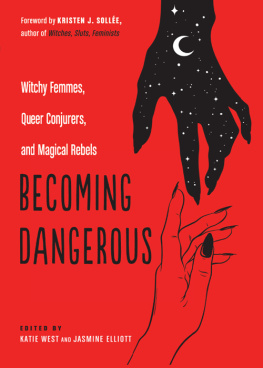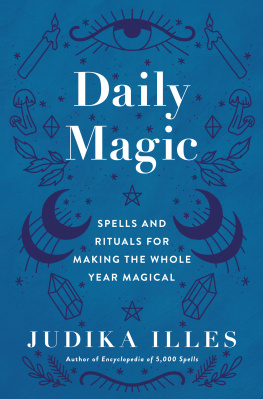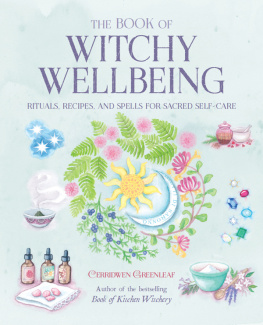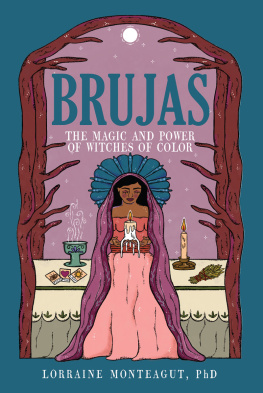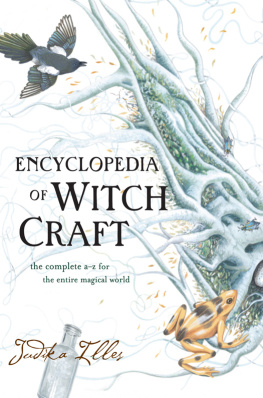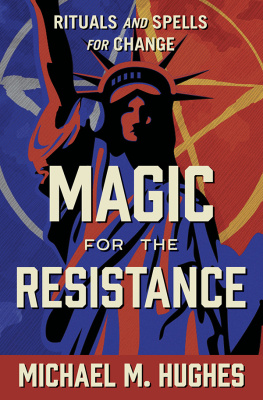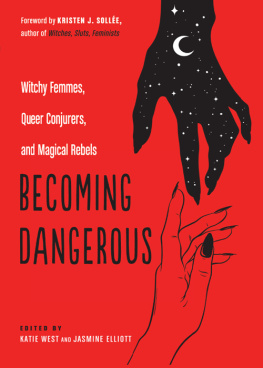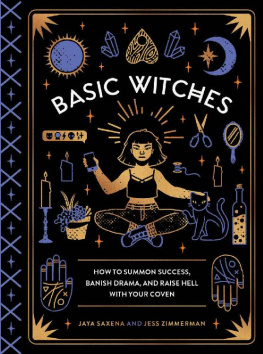

This edition first published in 2019 by Weiser Books, an imprint of
Red Wheel/Weiser, LLC
With offices at:
65 Parker Street, Suite 7
Newburyport, MA 01950
www.redwheelweiser.com
Copyright 2018, 2019 by Katie West and Jasmine Elliott
Foreword copyright 2019 by Kristen J. Solle
All rights reserved. No part of this publication may be reproduced or transmitted in any form or by any means, electronic or mechanical, including photocopying, recording, or by any information storage and retrieval system, without permission in writing from Red Wheel/Weiser, LLC. Reviewers may quote brief passages. Previously published in 2018 by Fiction & Feeling Limited, ISBN: 978-0-9957164-3-8.
The authors within this publication retain copyright for their work.
Unfuckable 2018 Cara Ellison
Trash-Magic: Signs & Rituals for the Unwanted 2018 Maranda Elizabeth
Uncensoring My Ugliness 2018 Laura Mandanas
Femme as in Fuck You: Fucking with the Patriarchy One Lipstick Application at a Time 2018 Catherine Hernandez
Before I Was a Woman, I Was a Witch 2018 Avery Edison
Undressing My Heart 2018 Gabriela Herstik
Garden 2018 Marguerite Bennett
Reddit, Retin-A, and Resistance: An Alchemist's Guide to Skincare 2018 Sam Maggs
The Future is Coming for You 2018 Deb Chachra
My Witch's Sabbath of Short Skirts, Long Kisses, and BDSM 2018 Mey Rude
Buzzcut Season 2018 Larissa Pham
The Harpy 2018 Meredith Yayanos
Fingertips 2018 merritt k
Red Glitter 2018 Sophie Saint Thomas
Touching Pennies, Painting Nails 2018 Sim Bajwa
Ritual in Darkness 2018 Kim Boekbinder
Gayuma 2018 Sara David
Pushing Beauty Up Through the Cracks 2018 Katelan Foisy
Ritualising My Humanity 2018 J. A. Micheline
Simulating Control 2018 Nora Khan
I Am, Myself, a Body of Water 2018 Leigh Alexander
ISBN: 978-1-57863-670-9
Library of Congress Cataloging-in-Publication Data available upon request.
Cover design by Kathryn Sky-Peck
Interior by Katie West
Typeset in Fanwood and Weiss
Printed in Canada
MAR
10 9 8 7 6 5 4 3 2 1
www.redwheelweiser.com/newsletter
Contents
Foreword
If the broom
fits witch it
is time to
ride it
act up
resist
the Yerbamala Collective
What does it mean to resist? When resist is the slogan of a multibillion-dollar political machine. When #resist is a viral meme. When resist is printed on shirts and hats and stickers you get for joining the right email list, and resistance has been co-opted by the very systems you're trying to resist?
In Becoming Dangerous, witchy femmes, queer conjurers, and magical rebels offer answers. Through twenty-one wildly different essays, the authors lay bare their prismatic perspectives on what it means to challenge the social, political, and cultural forces that seek to marginalize and erase them. Rituals of reclamation. Aesthetic spellcraft. Tapping into the earth for answers. Cracking open your ancestral powers. These are their routes to redemption, the way these writers summon the strength to resist.
Now more than ever, witches, occultists, and magicians are joining the magical resistance. Healing circles for survivors, mass hexes against fascists and abusers, and collective protection spells are proliferating. The pervasive notion that the political and the spiritual are contradictory is slowly being dispelled.
When I started teaching my college course, The Legacy of The Witch, at the New School five years ago, incorporating social justice into discussions about witchcraft seemed novel to the students taking the class. Fascinating, yes, but removed from reality, they'd say. They perceived the political realm as devoid of grace and of magic. They understood witchcraft to be all aesthetic and no action. But every year since then, as the American government has doubled down on exclusionary, punitive, and oppressive policies, my students arrive more and more primed to view the necessity of studying the two in tandem. Many even come to the table well-versed in both subjects, already part of magical communities putting on their own protests and using ritual as intimate parts of their own acts of resistance.
When studying witchcraft and social justice movements of the past and present, cyclical patterns emerge. As a fraught political climate simmers and comes to a roil, the occult is often the next mode of defense, of reproach. This holds today as much as it did in the age of second wave feminism and neopaganism, and in the time of suffragists and Spiritualism. Historically, many of the greatest acts of resistance have been informed by spiritual practice. And some of the most nourishing spiritual practices have been borne within society's stifling political strictures, like so many buds finally bursting through fallow soil.
In 1843, Isabella Baumfree received an otherworldly call to serve. She christened herself Sojourner Truth. She traversed the country to share and teach and extemporize about womanhood and inequity and the painful realities of racism and sexism that were tearing America apart. Truth, a former slave, was a devout Christian. By today's standards, she was much more. Historian Nell Irvin Painter argues that Truth's syncretic spiritual practice, a mix of West African animistic beliefs, American folk magic, and Dutch Calvinism and Methodism makes her a witch in the contemporary sense of the word. Her rituals were public, massive and mesmeric, drawing hundreds hypnotized by her impassioned oratory as she planted the seeds that would later bloom into Womanism and Intersectionality.
In 1974, a community of lesbians in Wolf Creek, Oregon birthed Womanspirit, the first quarterly magazine dedicated to both spirituality and feminism. In the midst of the women's liberation movement, these women were frustrated with the limitations of patriarchal religion but didn't want to eschew spirituality altogether. They took the formation of consciousness-raising groups that were central to early feminism and saw the magic inherent within such sharing circles. Feminism tells us to trust ourselves, wrote Jean Mountaingrove, one of the founders of Womanspirit. We began to trust our own feelings, we began to believe in our own orgasms. These were the first things. Now we are beginning to have spiritual experiences and, for the first time in thousands of years, we trust it.
In 2017, an anonymous group of anti-fascist witches joined together to hex the white supremacist capitalist heteropatriarchy. Under the Yerbamala Collective moniker, this amorphous cadre of activists released free, downloadable zines and spellbooks decrying racism, sexism, transphobia, Islamophobia, and, above all, complacency. Complacency is anti-magic, one poem of theirs declares. Witches of all genders ride now.
The Yerbamala Collective is a purposefully porous group of witches so numerous you might as well call us the stars, a member told Janus Kopfstein in an interview published on Medium. We are everywhere, behind every fascist, waiting for the fist to be our own. We started as a conversation between friends, which spread to other friends around the country. We covened together in the encrypted byways of the internet to form our first response and rally cry... We are claiming our righteous anger and using that too as a fuel. This fight will take so much away from us. It's important we remember who we are: divine beings with divine power.
Next page
